Busking business blossoms in Bern and beyond
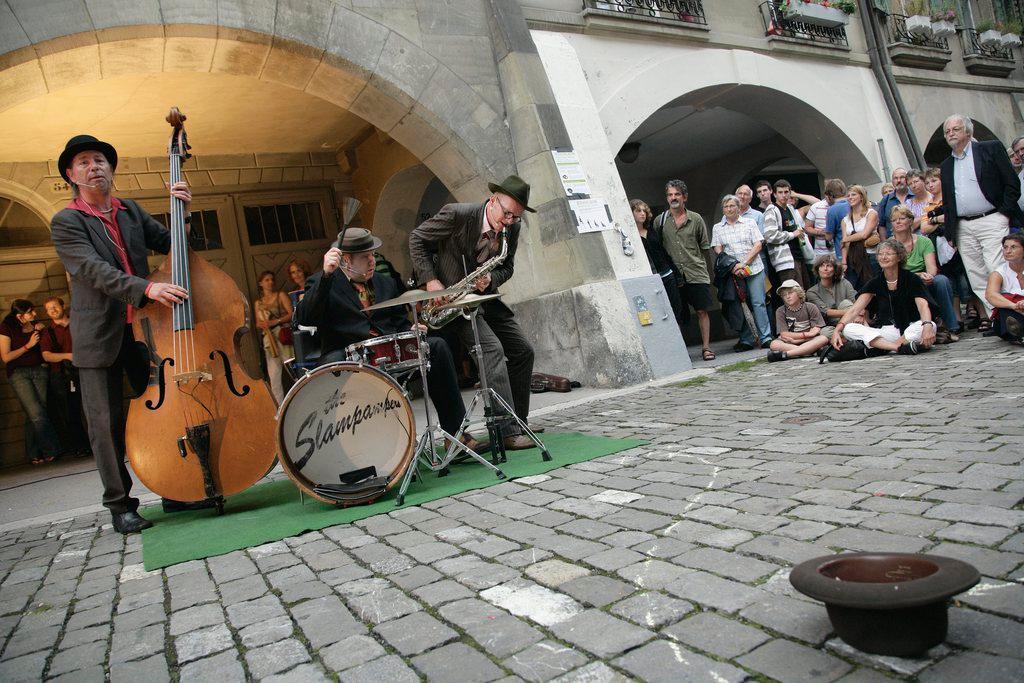
Regardless of whether the street performers strike it rich, buskers festivals are striking a chord in many parts of the world. In the Swiss capital, Bern, there’s a prize much bigger than hats brimming with spare change.
A sign at the corner of the stage promotes CDs, T-shirts and vinyl while a man in a goofy hat works his way through the crowd in the Bern square, Rathausplatz. He’s collecting money and selling merchandise for a British-based blues rock band called Wille and the Bandits.
“He’ll do a little dance if you ask him to. Likes having his bum pinched, too!” jokes the singer, urging audience members to engage in some sort of a transaction.
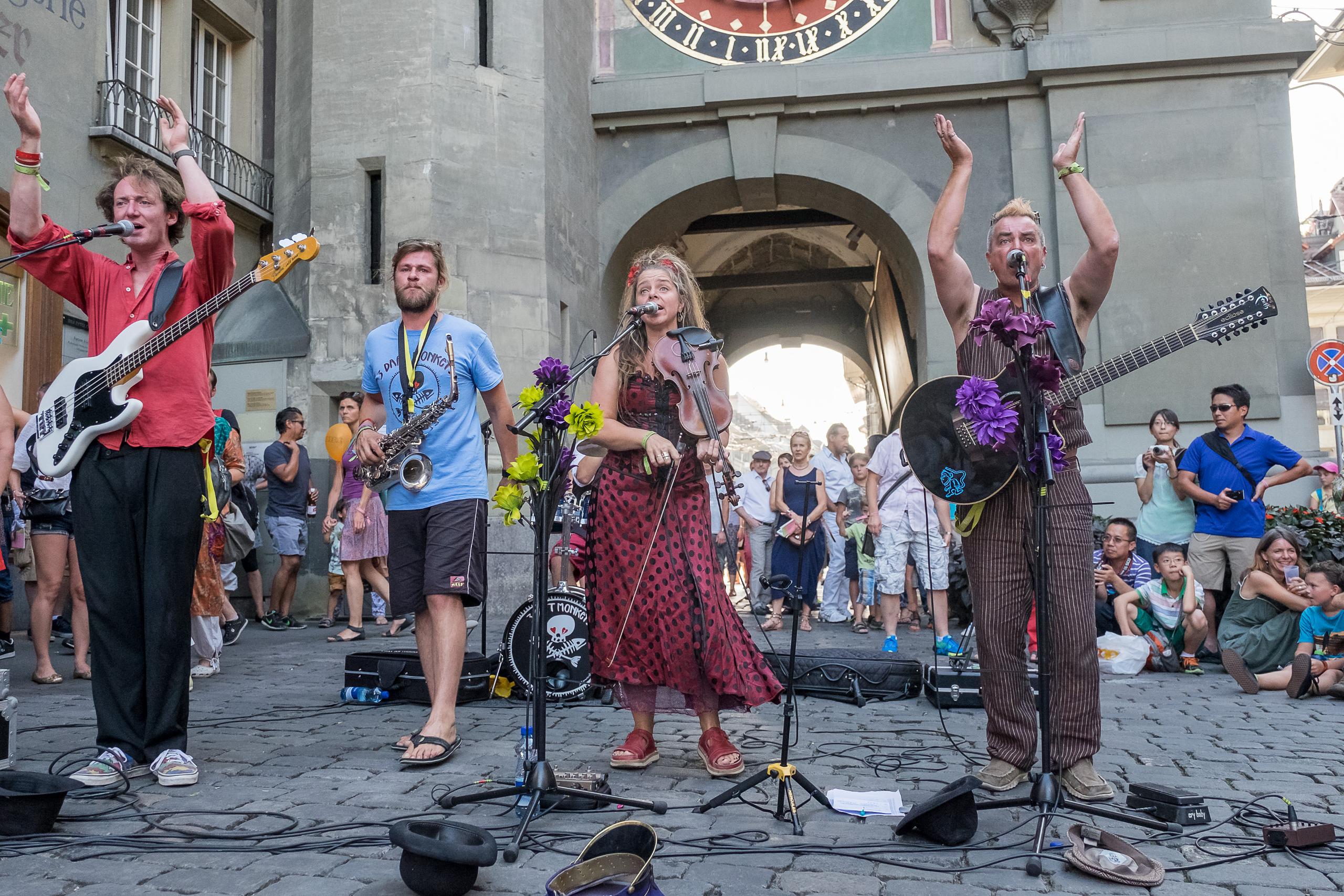
More
Buskers Bern 2015
The setting is the Buskers BernExternal link festival, which celebrated its 12th year this summer. The three-day event featured 42 acts with 145 performers from 18 countries. Half of the acts were musical, the rest involved clowns, dancers and other artists.
“Our network is big and we have many contacts and recommendations from all over the world. This year we had to refuse 850 applications. And we really checked them all out,” festival director Christine Wyss told swissinfo.ch.
Competition is fierce because the conditions are so good in Bern: an all-expenses paid trip to the city, a well-organised event, and the chance to earn decent “hat money” after each show.
“Buskers make the most money at these festivals,” according to Zoobie, the editor in chief of the reference website Busker CentralExternal link. At Buskers Bern, Wyss estimates that a performance could yield CHF500-800 ($520-835), depending on the act, the number of artists and the generosity of the audience. Each act puts on three shows a night, but Buskers Bern doesn’t pay the artists for performing.
Not a deterrent, says Wyss. “Experienced musicians, maybe 50 years old, have told me ‘Look, in 20 years I’ve never seen a festival so well organised and I’ve never been so well treated and respected’. And this is maybe more important than the money.”
Younger artists are also grateful.
Final day of street gigs at @buskersbernExternal link. It's been ace. Here's the river we've been chilling out in. pic.twitter.com/xQdQypo37UExternal link
— Tankus the Henge (@tankusthehenge) August 8, 2015External linkDanke @buskersbernExternal link für diese wunderbaren drei Tage! What a Festival!!!❤️ pic.twitter.com/zMdEI2mWfuExternal link
— Eclecta Forever (@Eclecta_Forever) August 11, 2015External linkApart from the good conditions, appearing at a festival gives artists a chance to get noticed. For example, organisers from other Swiss, Italian and Austrian festivals come to Bern, notes Wyss.
“There are also booking agents and talent scouts. Many bands get booked in other festivals and clubs. Above all Swiss bands which performed at Buskers Bern get many gigs, public and private,” Wyss said.
As Zoobie of Busker Central pointed out, “The creator of Circus Olay organised buskers into multi-million-dollar worldwide shows. Some of those professional buskers probably performed at buskerfests.”
Wyss and her colleagues also travel to other festivals to talent scout. “We always collaborate with other festivals, like Neuchâtel,” Wyss said, citing a cappella music and dance group Voices of Africa as an example of an act that performed at both events this summer.
“We were able to bring them directly from South Africa and share the costs,” Wyss explained.
Throughout the festival, volunteers sell bracelets and programmes for CHF10. That money covers electricity, staging, team salaries and other organisational costs, like bringing the artists to Bern. The total budget is CHF750,000 – some of which comes from the city and other donors.
Wyss says it’s a challenge because the festival area – covering most of Bern’s old town – can’t be blocked off, meaning that there’s no obligation to pay admission.
“It’s up to the public whether they want this festival. You should pay if you want to consume culture. It’s worth it,” she said, comparing the fee to half the price of a cinema ticket. Although sales weren’t as good as they had hoped, she said that the festival – with some 75,000 spectators – was still a “great success”.
Festival voices
“We just love it here. The quality of the music is incredible. We’re beautifully looked after and the audiences are just really vibrant and exciting,” singer and violinist Athene Roberts of 3 Daft MonkeysExternal link told swissinfo.ch. It was the band’s second time at Buskers Bern – they were invited to return after a successful appearance three years ago.
“So marvellous. The reception we have got is so amazing, we are loving each and every moment,” Nomandla Hallam of Voices of AfricaExternal link enthused.
Drummer Andy Naumann of Wille and the BanditsExternal link said he appreciated how well it’s organised, such as having allocated spots to perform. “Plus you get to see other bands in between sets.”
And as singer and guitarist Wille Edwards added, “The audiences have been great! My hat is full of money, so they must have enjoyed it.”
Street life
How much can a busker make on his own, without the infrastructure of a festival?
“Let’s say enough to make a living, anyway. I can survive. I don’t get rich, but I can finance my trips,” Italian singer-songwriter Giovanni BassanoExternal link told swissinfo.ch. He didn’t perform at the Buskers Bern festival, but he regularly attracts crowds near the Bern train station.
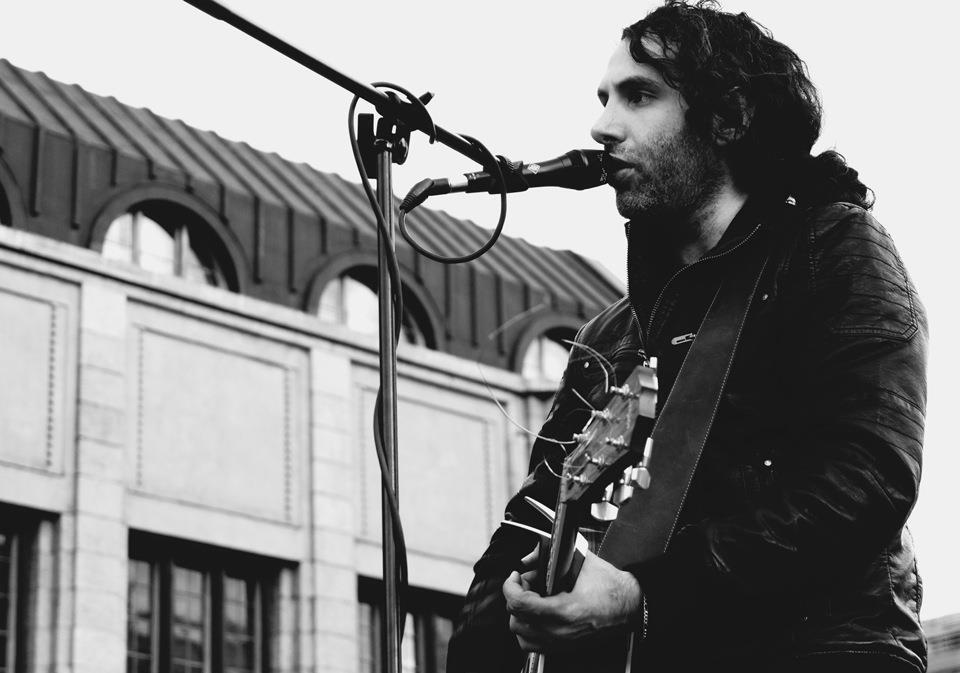
More
Giovanni Bassano
“Switzerland is a good country to play in. There are some nations where it’s more difficult because there’s a lot of competition. It’s not easy to make it in England and Ireland,” said Bassano, who’s been focusing on music full time for nearly a decade.
He’s performed in the US and in several European capitals, including Amsterdam, Copenhagen, Dublin, Glasgow, Helsinki and Prague. Some cities have specific laws related to street performance.
For example, you need a permit for €260 to play in Hamburg, where Bassano plans to spend about three months. In Amsterdam it’s €50.
“Every city is different, but it’s alright. You can make it back,” he smiled. No permits are required in Bern, but there are other rules. Artists can perform on only one day per week, and after 30 minutes, they’re supposed to change locations.
According to festival director Wyss, “Bern has a large tradition of busking, maybe because of the arcades, maybe because of a certain cultural background of the people.” In terms of restrictions, she believes Bern is pretty average compared to other places, whereas Vienna and London are quite strict. Wyss says the laws are there to help keep the peace.
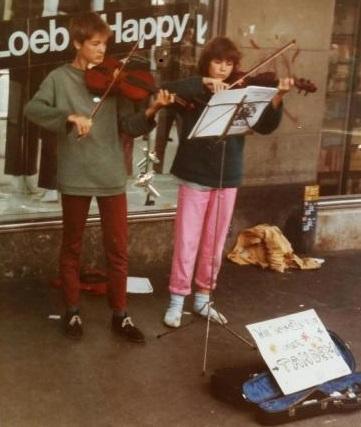
More
Christine Wyss (on left) recalls busking in Bern
“It can be a problem for certain shops when there’s a musician without much talent in front playing just his three chords all day. That can be quite annoying,” Wyss said.
There’s one Bernese rule that Bassano likes to bend. “You’re not allowed to use a speaker. Technically. But they [the police] are so nice, that sometimes it’s OK,” Bassano said, confessing that he’s been fined three times – and that the fine doubles each time.
“First it was CHF60, then 120, then 240. The next one will be 480. It’s like a business risk,” quipped Bassano.

In compliance with the JTI standards
More: SWI swissinfo.ch certified by the Journalism Trust Initiative

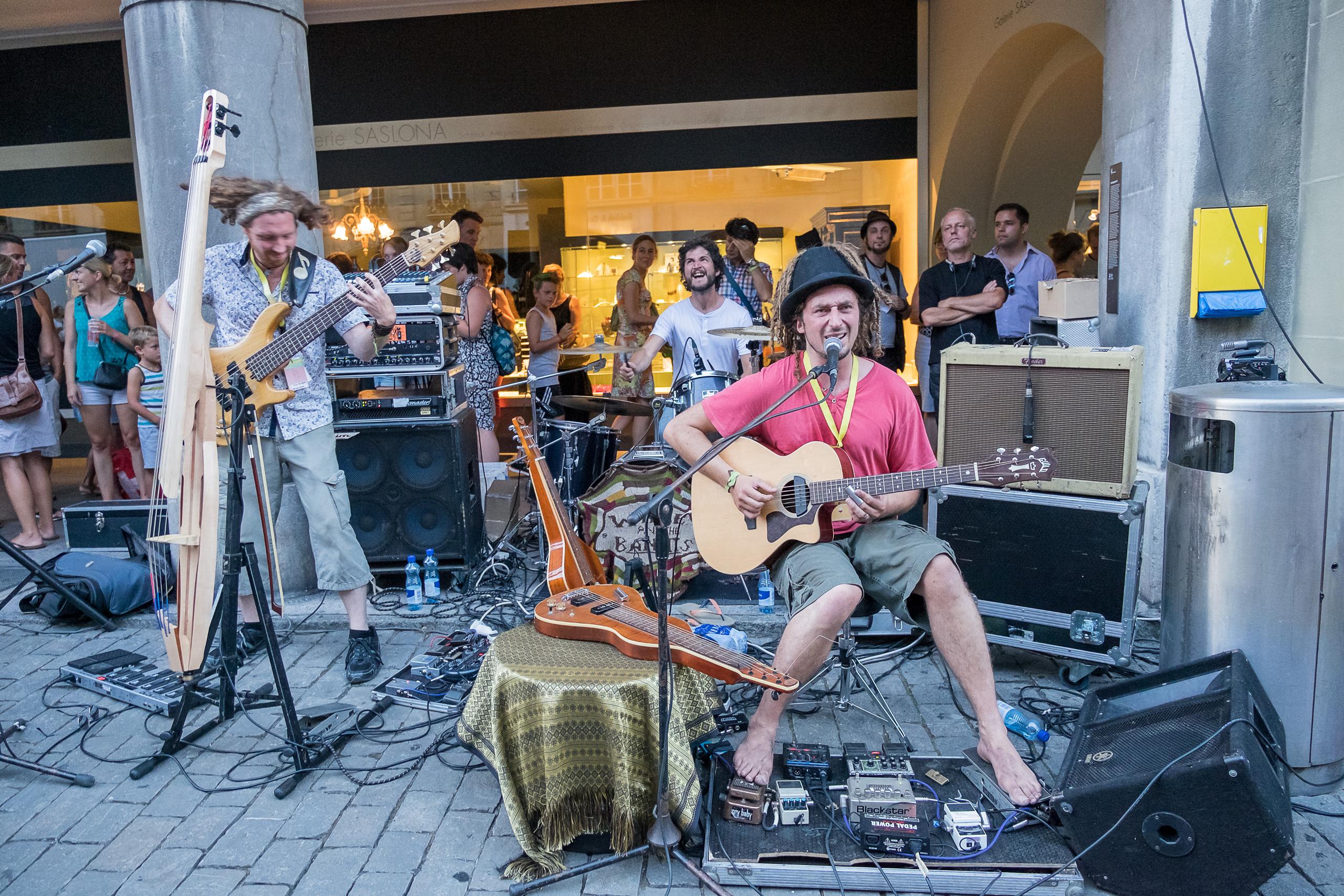
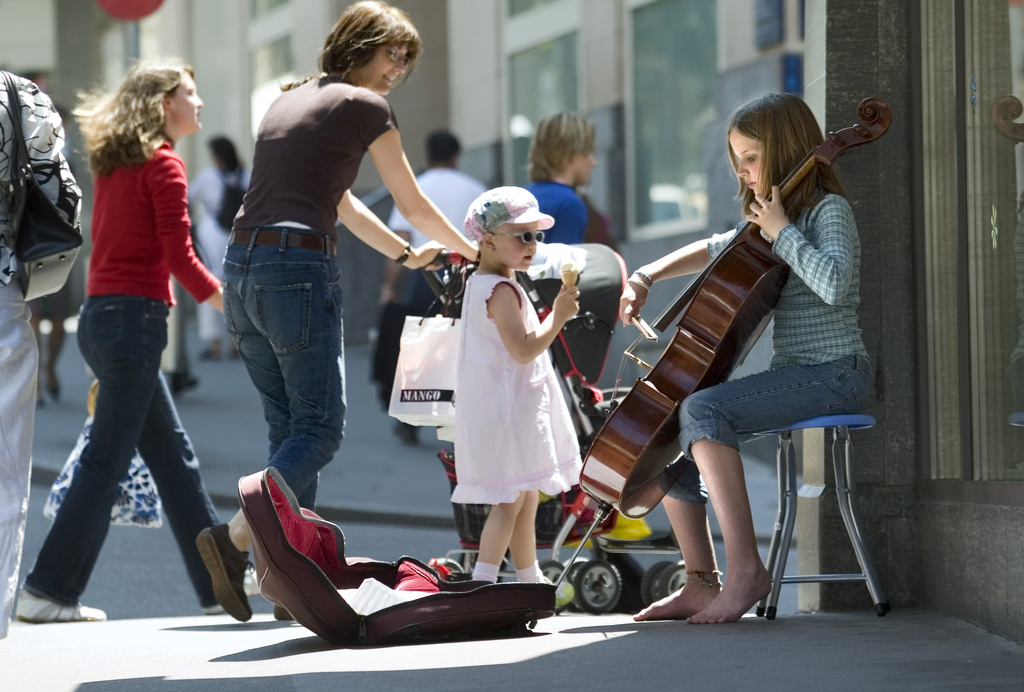
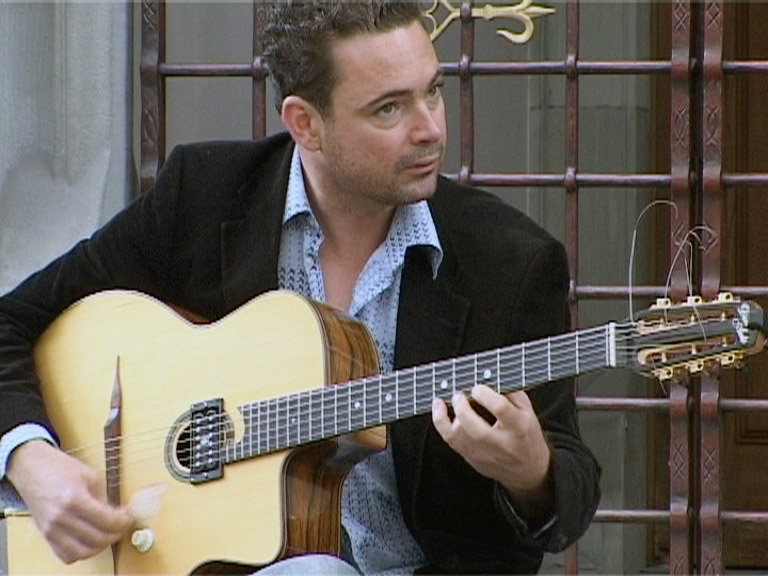
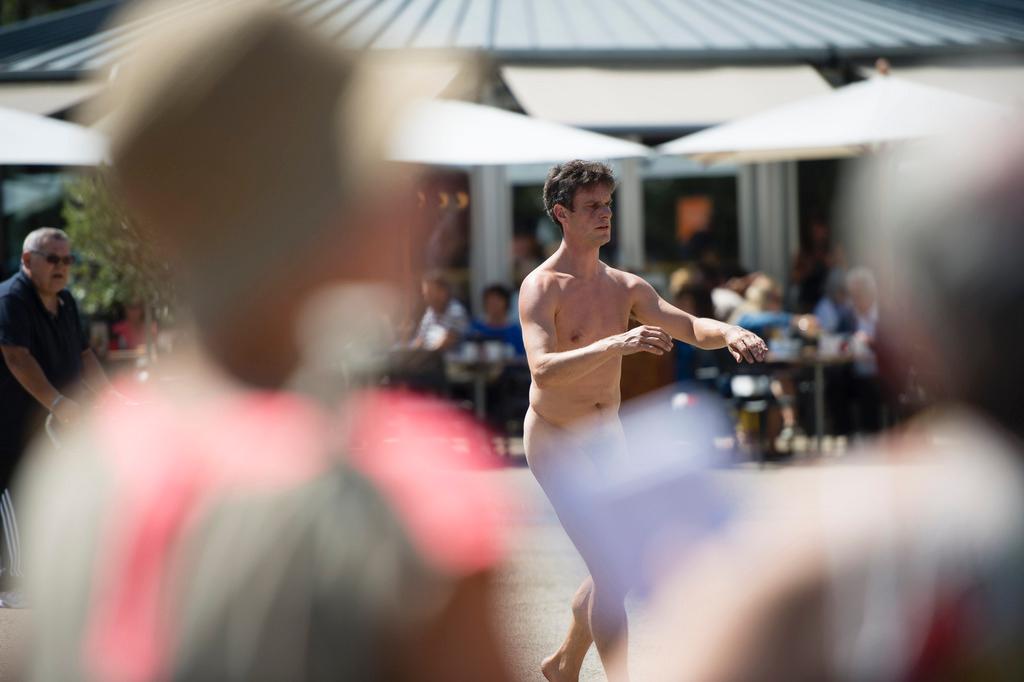
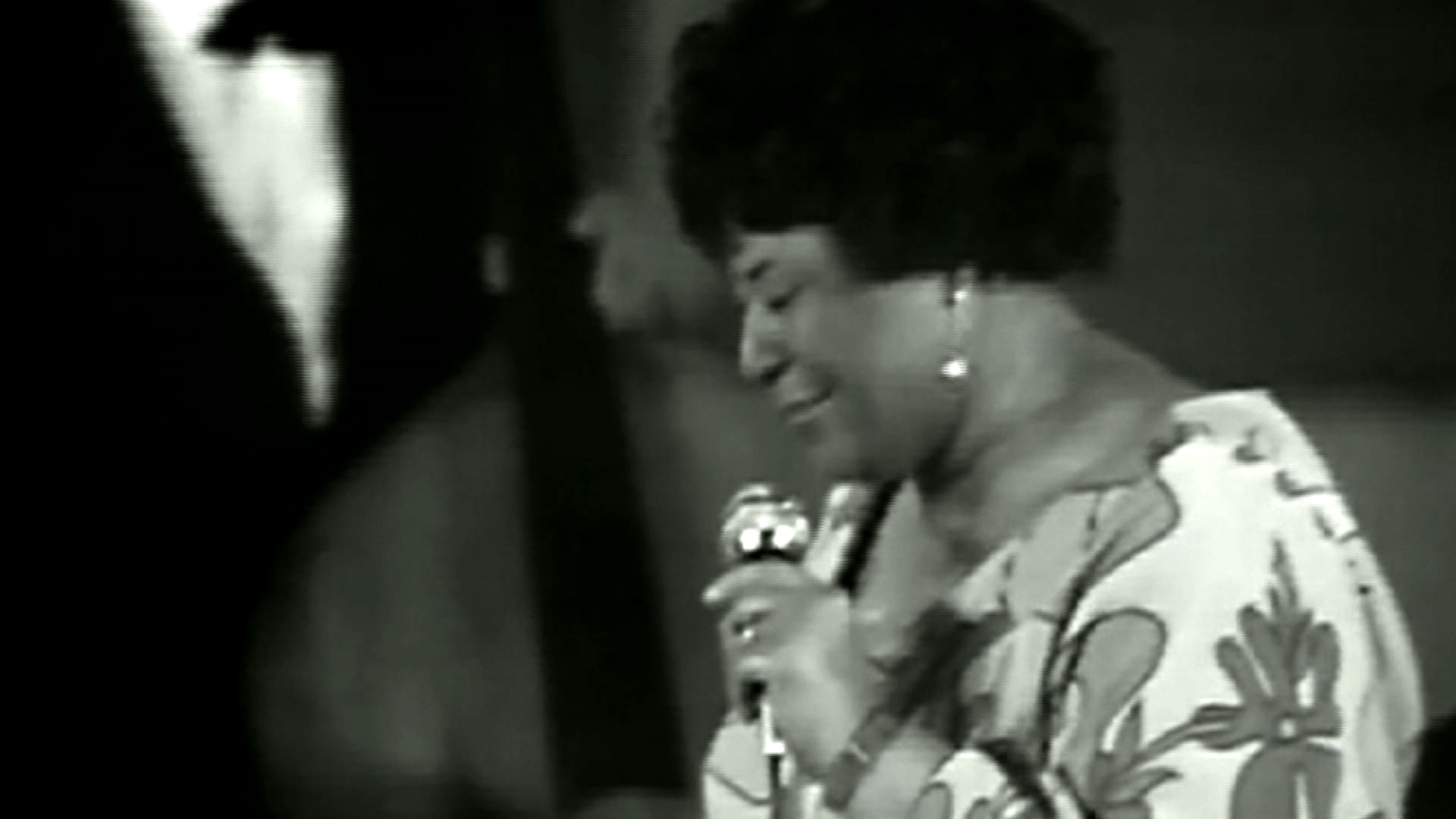
You can find an overview of ongoing debates with our journalists here. Please join us!
If you want to start a conversation about a topic raised in this article or want to report factual errors, email us at english@swissinfo.ch.